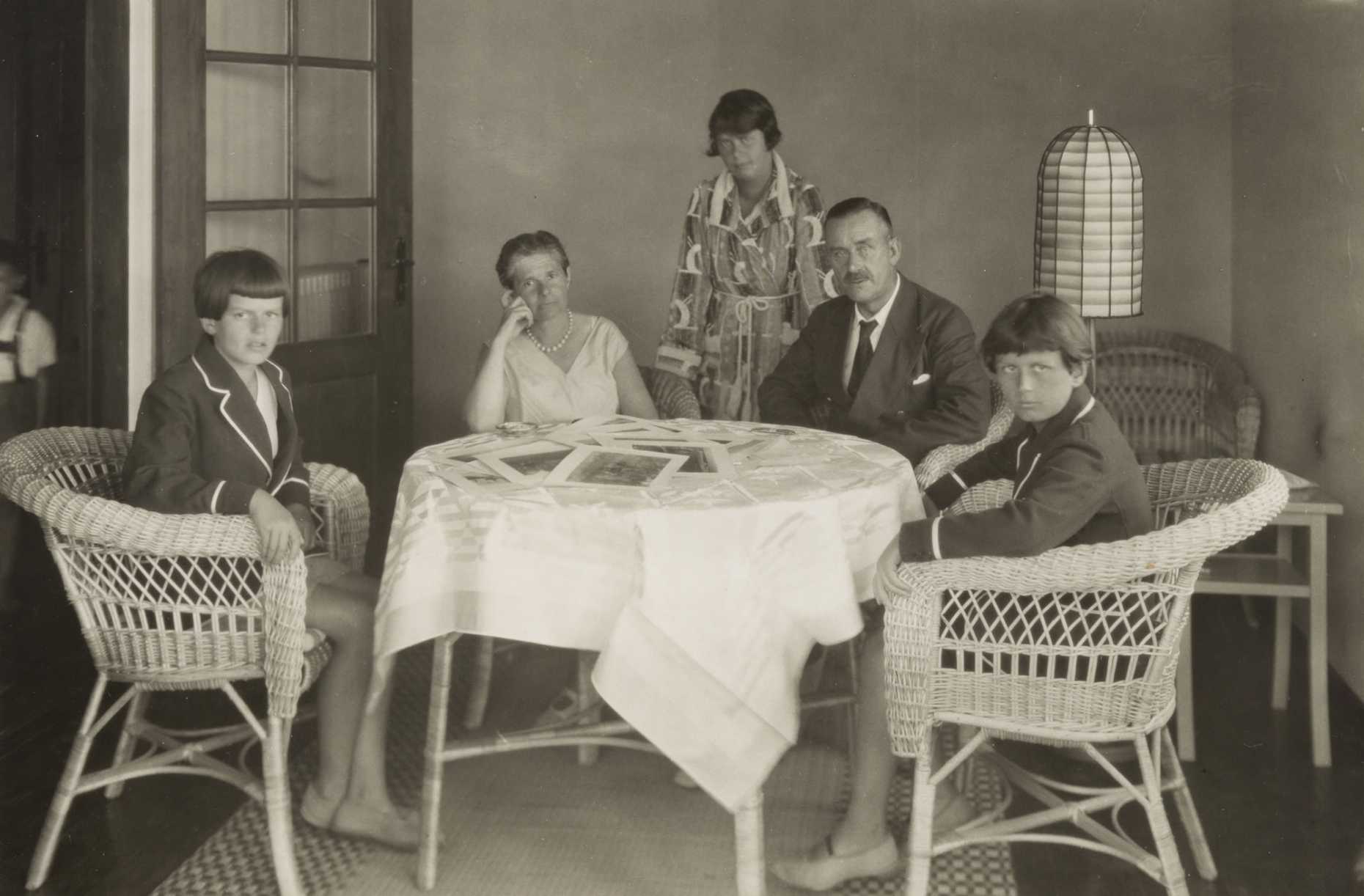Thomas Mann
Thomas Mann was born in Lübeck in 1875. He moved to Munich in 1894, where he lived as a freelance author until Hitler seized power in 1933. As he was abroad on a lecture tour at the time, he did not return to Germany.
Friends and family members managed to rescue some of Mann's work materials, books and personal manuscripts (including his diaries) from Munich and take them to Zurich, where the author had settled following sojourns in Sanary-sur-Mer and various other places.
In December 1936, Thomas Mann's citizenship was revoked by the National Socialists. A month earlier, he had received Czechoslovakian citizenship. Mann lived with his family in Küsnacht (Canton of Zurich) until 1938. The annexation of Austria that year prompted him to emigrate to the USA, where he lived in Princeton (New Jersey) and Pacific Palisades (California).
Mann was granted American citizenship in 1944. He returned to Europe from exile in 1952, initially settling in Erlenbach then Kilchberg (both in the Canton of Zurich). He died at Zurich Kantonsspital on 12 August 1955.
Thomas Mann received the Nobel Prize in Literature for his novel "Buddenbrooks" in 1929. He spoke out about the political turmoil in Germany during the Weimar Republic and the Third Reich in numerous public talks, lectures and the media, deliberately opposing Nazi Germany as a representative of the "other Germany".
